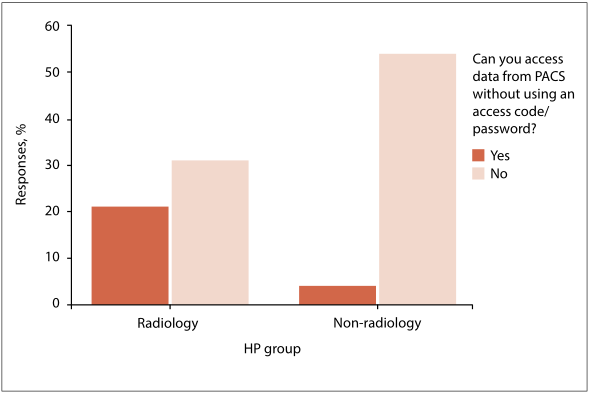Difference between revisions of "Template:Article of the week"
Shawndouglas (talk | contribs) (Updated article of the week text.) |
Shawndouglas (talk | contribs) (Updated article of the week text.) |
||
| Line 1: | Line 1: | ||
<div style="float: left; margin: 0.5em 0.9em 0.4em 0em;">[[File: | <div style="float: left; margin: 0.5em 0.9em 0.4em 0em;">[[File:Fig1 Mahlaola SAJouBioLaw2017 10-2.png|240px]]</div> | ||
'''"[[Journal: | '''"[[Journal:Password compliance for PACS work stations: Implications for emergency-driven medical environments|Password compliance for PACS work stations: Implications for emergency-driven medical environments]]"''' | ||
The effectiveness of password usage in data security remains an area of high scrutiny. Literature findings do not inspire confidence in the use of passwords. Human factors such as the acceptance of and compliance with minimum standards of data security are considered significant determinants of effective data-security practices. However, human and technical factors alone do not provide solutions if they exclude the context in which the technology is applied. | |||
Objectives: To reflect on the outcome of a dissertation which argues that the minimum standards of effective password use prescribed by the [[information]] security sector are not suitable to the emergency-driven medical environment, and that their application as required by law raises new and unforeseen ethical dilemmas. ('''[[Journal:Password compliance for PACS work stations: Implications for emergency-driven medical environments|Full article...]]''')<br /> | |||
<br /> | <br /> | ||
''Recently featured'': | ''Recently featured'': | ||
: ▪ [[Journal:Data science as an innovation challenge: From big data to value proposition|Data science as an innovation challenge: From big data to value proposition]] | |||
: ▪ [[Journal:The development of data science: Implications for education, employment, research, and the data revolution for sustainable development|The development of data science: Implications for education, employment, research, and the data revolution for sustainable development]] | : ▪ [[Journal:The development of data science: Implications for education, employment, research, and the data revolution for sustainable development|The development of data science: Implications for education, employment, research, and the data revolution for sustainable development]] | ||
: ▪ [[Journal:GeoFIS: An open-source decision support tool for precision agriculture data|GeoFIS: An open-source decision support tool for precision agriculture data]] | : ▪ [[Journal:GeoFIS: An open-source decision support tool for precision agriculture data|GeoFIS: An open-source decision support tool for precision agriculture data]] | ||
Revision as of 14:11, 24 September 2018
"Password compliance for PACS work stations: Implications for emergency-driven medical environments"
The effectiveness of password usage in data security remains an area of high scrutiny. Literature findings do not inspire confidence in the use of passwords. Human factors such as the acceptance of and compliance with minimum standards of data security are considered significant determinants of effective data-security practices. However, human and technical factors alone do not provide solutions if they exclude the context in which the technology is applied.
Objectives: To reflect on the outcome of a dissertation which argues that the minimum standards of effective password use prescribed by the information security sector are not suitable to the emergency-driven medical environment, and that their application as required by law raises new and unforeseen ethical dilemmas. (Full article...)
Recently featured:










